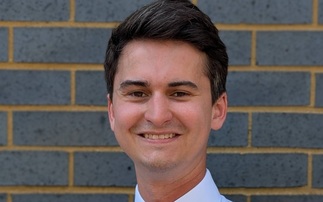Kim Kaveh speaks to LifeSight's two leading ladies about its journey to authorisation and achievements thus far.
In late February, Willis Towers Watson's £4.2bn master trust LifeSight achieved a major milestone. It became the first master trust to be authorised by The Pensions Regulator (TPR) under its regime which kicked off last October.
The 105,000 member master trust - which opened in 2015 - was also the first to apply for authorisation just one month after the application window opened.
Its speed in getting the application sent off may suggest it was a simple process, but as its trustee chairwoman Jane Platt says, "I would not call it easy".
She adds: "There were a lot of things to do, quite rightly, because the regulator needs to understand in detail, how the master trust works, and the standards it has in place.
"And I have to say that because no one had ever been through this process before, it's something that you embark on, and you wonder how it's actually going to go.
"Trustees were also engaged throughout. People forget it's actually the trustee's application, we all had to read it many times; it was a collaborative effort."
Although the master trust put together an 800-page submission to the regulator, it says it did not have to document any new processes to meet its requirements, and also completed the readiness review before handing in its official submission.
Managing director Fiona Matthews notes the processes were "already documented, could be evidenced, and it did not have to have any new agreements, or change the balance of powers of trustees".
‘A range of capabilities'
LifeSight's trustee board is made up of five independent trustees - two men and three women including Platt, all with diverse backgrounds which are not necessarily in pensions.
As Platt points out, "this gives us a range of capabilities". Platt herself is a non-executive director at the Financial Conduct Authority, and has held a range of other roles including being chief executive of National Savings and Investments.
Other members of the team include Sharmila Nebhrajani - a biomedical scientist and chief executive of Wilton Park - an executive agency of the Foreign Office convening international policy discussions on peace, prosperity defence and security.
Russell Picot is adviser to the FSB Climate Risk Financial Disclosures Task Force; Mervyn Walker chairs the board at HM Revenue and Customs, while Caroline Fawcett is an experienced non-executive director, and spent the majority of her career in senior marketing and customer services roles.
Platt says: "Yes, we've got gender diversity, yes we've got a degree of ethnic diversity. But most of all, we've got diversity of discipline and thought."
On the executive side, a similar story plays out. The team is made up of a 50/50 gender balance at every level with a 30-year age band.
Matthews highly values having people with different backgrounds and experiences, such as different social and educational backgrounds.
"It can be challenging managing a team of people that have very different ways of working, but equally it's good to have diversity of thought process because you have more ideas."
Arguably, a diverse team is also good for improving member outcomes, as they will be better placed to represent a diverse group of members.
Multimedia engagement
Indeed, now the master trust has been authorised, it can put all of its energy into ensuring good member outcomes.
LifeSight has a range of communication and engagement strategies in place. For example, its ‘ageOmeter' tool is designed so that members can see what age they could retire at, and the impact their decisions could have on their retirement age by making changes to their contributions.
As Matthews points out, the master trust is "multimedia". She adds: "Most of what we do is online. We use technology very strongly, and that can therefore give video content, which is available through multiple devices, as well as different tools that members can play with."
Furthermore, its tools include messages which are personal to the individual member.
Matthews continues: "We need to be quite humble about how we relate to those individuals, and be open to really, really listen properly to what people want, how people would like us to engage them, what concerns they have, and then be able to react".
Furthermore, as Platt notes, the trustee has a very strong view that growth in this area should be controlled, and that "our focus is absolutely on members".
She adds: "It is not about anything else. It's about members and making sure that there's a strong and robust infrastructure and support within LifeSight going forward.
"So we don't mind if it grows very, very slowly, as long as we are able to invest sufficiently with the engagement tools."
Investment principles
The master trust also explains how it incorporates environmental, social and governance (ESG) factors in its investment strategy.
As Platt explains: "We can't adopt any policies which aren't justified in terms of giving a good return.
"But part of our investment principles is that we do believe you can orient portfolios in a in a way which adapts to, and takes account of ESG."
She adds that the key thing for the trustee is that "anything it does has to be aligned with giving good returns to its members".
As the master trust market continues to evolve, taking on new members amid the rollout of auto-enrolment, the ‘member first' attitude has never been more important. LifeSight seems to have the right idea.
CV: Fiona Matthews
Position Fiona Matthews is managing director of Willis Towers Watson's LifeSight, and has been since the master trust started in 2015. She has worked at Willis Towers Watson since 2008, starting as a managing director of its retirement risk management solutions business.
Previously Matthews was head of corporate development at Resolution, and a non-executive director of the Warrington and Halton Hospitals NHS Foundation Trust. She has also been a director at Royal SunAlliance, a marketing director at Hannover, and an actuary at both Barclays Bank and Legal and General.
CV: Jane Platt
Position Platt has been a non-executive director of the Financial Conduct Authority since 2013, and chairwoman of the LifeSight master trust since 2017.
Previously Platt was chief executive of National Savings and Investments for 10 years. She also trained as an investment manager with Mercury Asset Management, held senior executive positions at BZW Asset Management, and was later chief executive of Barclays Stockbrokers.








